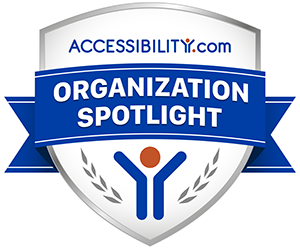Editor’s note: this article was originally published at on the author’s website and reprinted with permission by the author, Reji Matthew, PhD, LCSW
Music therapy is an evidence-based expressive arts intervention that is increasingly being integrated in health care centers throughout the country to aid in treating a variety of medical conditions: developmental disabilities, Alzheimer’s disease, substance-abuse disorders, brain injuries, physical disabilities and chronic pain. The emphasis in music therapy is not on musical ability or mastery, but rather engaging in the sensory experience of sound, performance, movement, instrumentation or voice to affect change in the patient’s well being.
Model of Wellness
Daniel’s Music Foundation (DMF) is an innovative, non-profit, volunteer-run organization providing free music programs for people with disabilities from age three to adulthood in the New York City area. Its members have a range of disabilities, including Down syndrome, autism, cerebral palsy, sensory processing disorders and paraplegia, to name a few. DMF aims to enable its members to benefit from training in musical instruments, voice, rhythm, song writing and more to experience the emotional release, community bonding, hope and joy that music can provide. DMF members undergo 5- to 10-week classes in musical training and have a public recital twice a year. Staff includes a gifted group of volunteers, many of whom are music therapists, musicologists, college professors and performing musicians. DMF seeks to build a community of people of all different abilities through music. “For the members and the caregivers who bring them to sessions, I believe they immediately get the sense that no one is judging them that regardless of their diagnosis, music is for all and they are not alone,” explained musicologist Stephanie Jensen-Moulton, PhD.”Often medical intervention is about overcoming disability versus [simply] claiming who you are. Of course, it is beneficial to strive and work on getting from point A to point B. But an important alternative is often overlooked: living in your body. and finding joy and expression now, here in the present,” Jensen-Moulton continued. “It is amazing to see the non-verbal members respond to music with some kind of phonation and then form words. There are connections being made.”
Daniel’s Story
Daniel’s Music Foundation is the result of one personal journey of music and recovery. Daniel Trush, now 25, suffered a rupture of one of his five brain aneurysms while playing basketball at 12 years old. He was in a coma for a month and hospitalized for 341 days, then underwent years of rehabilitation. Music played a key role in helping him restore his life. “When Daniel was in a coma, he was connected to 16 IV lines beeping constantly,” recalled Daniel’s father, Ken. “I started playing music as a way to comfort myself and to communicate to Daniel.” At first Ken played songs that communicated his feelings, like “I’m Not Giving You Up” by Gloria Estefan. “Then I made up my own song: ‘I believe in you. no matter how long it takes. I would be with you.'” His father sang these words to Daniel nightly. Though Daniel did not speak for six months after awakening from the coma, his family and caregivers observed him mouthing the words to the song. “He retained the music and [we knew] that communication was going on,”his father said. As Daniel recovered, he added words to the song that Ken had composed. “Music was our common language,”
Ken stated. “I saw how music became the vehicle for Daniel to express himself, to gain self-esteem, build confidence and be creative.”Ken noted the importance of balancing corrective goals with expressive goals. Daniel, for example, struggled significantly with mobility issues. “If you are constantly doing something that is wrong, it is easy to feel, ‘I am wrong.’ Through music, Daniel had he experience of doing something right.” After three years of active rehabilitation, Daniel stopped all therapies but continued with music. After discharge from rehabilitation, Daniel has continued music therapy weekly for the past 9½ years. He has learned to play the keyboard and has written original songs.After graduating from high school, Daniel started non-matriculated classes at Hunter College in New York City, where he took classes with Jensen-Moulton. “She helped me to find my passion for music,” Daniel explained. Daniel also expressed interest in using music
to connect with and help others, especially children. “I found that Daniel had a good ear for music, and then we started ear training,” Jensen-Moulton said. “When I met Daniel, he changed my perspective on people with brain trauma-his spirit and enthusiasm for learning was infectious… We have been taught to view people with disabilities through a pre-assumed lens, despite who the person is as an individual.. and what their capabilities are.” Today, as the co-founder of DMF, Daniel is actively involved in all areas of the foundation. One day a week he also volunteers at the pediatric unit of the Rusk Institute of Rehabilitation Medicine in New York, where he spent close to nine months in 1997 and 1998 during his recovery.
Integrating Music Therapy Into Rehab
OTs can explore integrating music therapy interventions on two levels. Individually, therapists can identify a client’s specific treatment needs and then work with a music therapist to integrate this in sessions. When OT practitioners are formulating treatment plans with patients, it can be helpful to note the following benefits of music interventions that parallel common rehabilitation goals.
Sensory stimulation. Music can provide both sensory and intellectual stimulation to patients. Music can stimulate the imagination, and can be energizing or distracting when one is fatigued, for example. Relaxation. Music can have a calming effect and can provide a patient with an “emotional break,” either actively by engaging in playing an instrument or passively by listening to pleasurable music. Stress relief. Music is used in hospitals for a wide variety of treatment situations: producing calm to induce sleep, or lessening muscle tension for the purpose of relaxation. Self-expression. Music intervention can allow for creative ways to respond to mental health needs. It can elicit new feelings, lift mood or stimulate emotional release. Functional goals. Engaging in music can also strengthen non-musical areas such as communication skills and social functioning. It can sharpen cognitive functioning through eliciting musical responses. On a programmatic level, currently there are promising protocols for adapting music therapy interventions in rehab settings. Dr. Barry Bittman, consulting neurologist to DMF and director of the Yamaha Music and Wellness Institute, conducts research on the therapeutic effects of music. One model, Recreational Music Making (RMM), is an approach to guide patients through the process of playing a musical instrument without the goals of mastery or performance. The organization Health Rhythms has music intervention protocols that have been applied to cancer patients, at-risk youth and the elderly.”Musical interventions can become an enabling strategy,” explains Bittman. “Despite the challenges a patient may face, you can engage them at any level with music, through sound, movement, listening; and this aids in a patient achieving wellness. In addition, for progressive disabilities, music can alter pain perception and has the ability to improve quality of life regardless of the progression of a medical condition.”Reflecting back on the journey through Daniel’s rehabilitation, Ken and Daniel emphasize that music therapy and organizations like DMF can facilitate growth and healing in part through the communities they build. When Daniel was in acute rehab he underwent five interventions a day. “I would have a lot of one-on-one, and it would be just me. I had little opportunity for group interaction,” Daniel explained. After seeing the amazing progress Daniel has made through music, the Trush family hopes that Daniel’s Music Foundation can be replicated in other communities. “We believe that every rehab center could benefit from having a music program,” Ken Trush said.
Reji Mathew, PhD, is a psychotherapist/clinical instructor at New York University. The main focus of her work is to promote coping-skills education for people with chronic illness and disability. Her clinical expertise is in integrative psychotherapy, particularly cognitive-behavioral skills training. Reach her via e-mail at her Web site: www.rejimathewphd-writer.com/
To learn more about the Daniel Music Foundation, click here.




